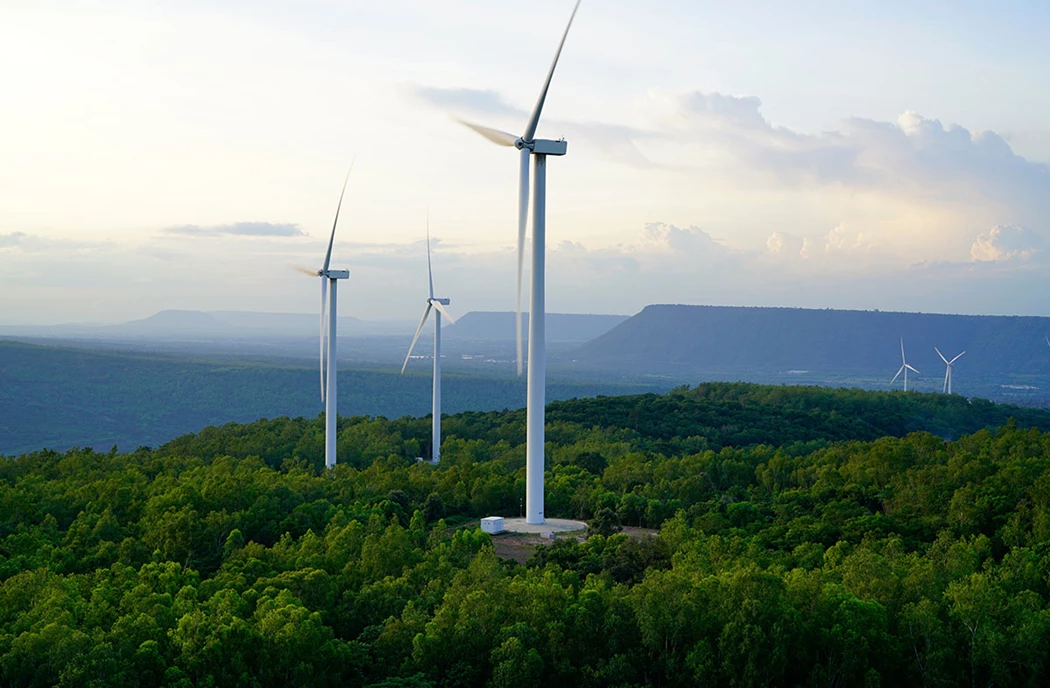COP29 Host Sees Gas Demand Soar Despite Phase-Out Plans
(Bloomberg) -- Months after the world agreed to transition away from fossil fuels at UN-led climate talks, the demand for natural gas from the host of this year’s COP29 is growing in Europe and elsewhere.
Azerbaijan, which has the presidency of the 29th United Nations’ Conference of the Parties, exported almost 24 billion cubic meters of natural gas in 2023 with half of the volumes going to Europe, according to Energy Ministry data.
“There’s absolutely no hint that” the gas demand will decline, Deputy Energy Minister Orxan Zeynalov said in an interview in the capital Baku. “Right now, we have a long list” of countries — both old and new buyers — for an additional 30 billion cubic meters.
The comments highlight a crucial stumbling block ahead of the latest round of climate talks — to keep the world on the path of moving away from dirtier energy sources when regions like Europe are still looking for the safety net of diversified supplies.
Producers like Azerbaijan have been stressing that the COP28 text also recognized the role that “transition fuels” like gas can play in moving to clean energy.
The BP Plc-led Shah Deniz deposit in December 2020 started supplying natural gas to Italy, Greece and Bulgaria via the so-called Southern Gas Corridor — a chain of pipelines connecting Azerbaijan’s Caspian Sea shores with Europe via Georgia and Turkey. Three more European countries, Romania, Hungary and Serbia, have since joined the list of buyers.
After Russia’s invasion of Ukraine triggered an energy crisis in the continent, European Commission President Ursula von der Leyen visited Baku in July 2022 and signed a memorandum of understanding to double natural gas purchases from Azerbaijan by 2027.
Despite the rising demands for its natural gas — exports to Europe last year rose more than 40% above 2021 levels — there are stumbling blocks. Getting an additional 10 billion cubic meters to the continent by 2027 could prove difficult as European buyers are reluctant to commit to long-term gas purchases from Azerbaijan.
“We can’t do this without long-term guarantees that our gas will be needed,” Zeynalov said. “What will happen after 2040, for instance?”
Another hurdle is a lack of funding to expand the existing export infrastructure as some European lenders no longer finance fossil fuel projects. Energy Minister Parviz Shahbazov earlier complained that his country hadn’t received the “close cooperation” it expected from the European Union to boost gas supplies to the 27-nation bloc.
“Pipeline gas cannot be delivered in big volumes” without long-term sales contracts, Shahbazov said Tuesday at an energy conference in Baku, adding that his government expected the EU to help finance the expansion of the infrastructure and secure long-term contracts.
Green energy projects are more promising.
The EU is “very supportive” of an Azerbaijani plan to build massive wind farms in the Caspian Sea and export at least 4 gigawatts of clean power to Europe every year via a cable under the Black Sea, Zeynalov said. Apart from Azerbaijan, the project involves Georgia, Romania and Hungary. Bulgaria has also shown an interest.
A feasibility study on the project was started in January and the first substantive results are expected by the time the Caspian Sea nation hosts the climate summit, he added.
©2024 Bloomberg L.P.
KEEPING THE ENERGY INDUSTRY CONNECTED
Subscribe to our newsletter and get the best of Energy Connects directly to your inbox each week.
By subscribing, you agree to the processing of your personal data by dmg events as described in the Privacy Policy.
More renewables news

House Committee Says It Finds Evidence of ‘Climate Cartel’

WEC Energy Offered $2.5 Billion US Loan for Renewable Projects

With Trump Looming, Biden’s Green Bank Moves to Close Billions in Deals

GE Vernova Expects More Trouble for Struggling Offshore Wind Industry

Climate Tech Funds See Cash Pile Rise to $86 Billion as Investing Slows

GE Vernova to Power City-Sized Data Centers With Gas as AI Demand Soars

Longi Delays Solar Module Plant in China as Sector Struggles

Australia Picks BP, Neoen Projects in Biggest Renewables Tender

SSE Plans £22 Billion Investment to Bolster Scotland’s Grid
















